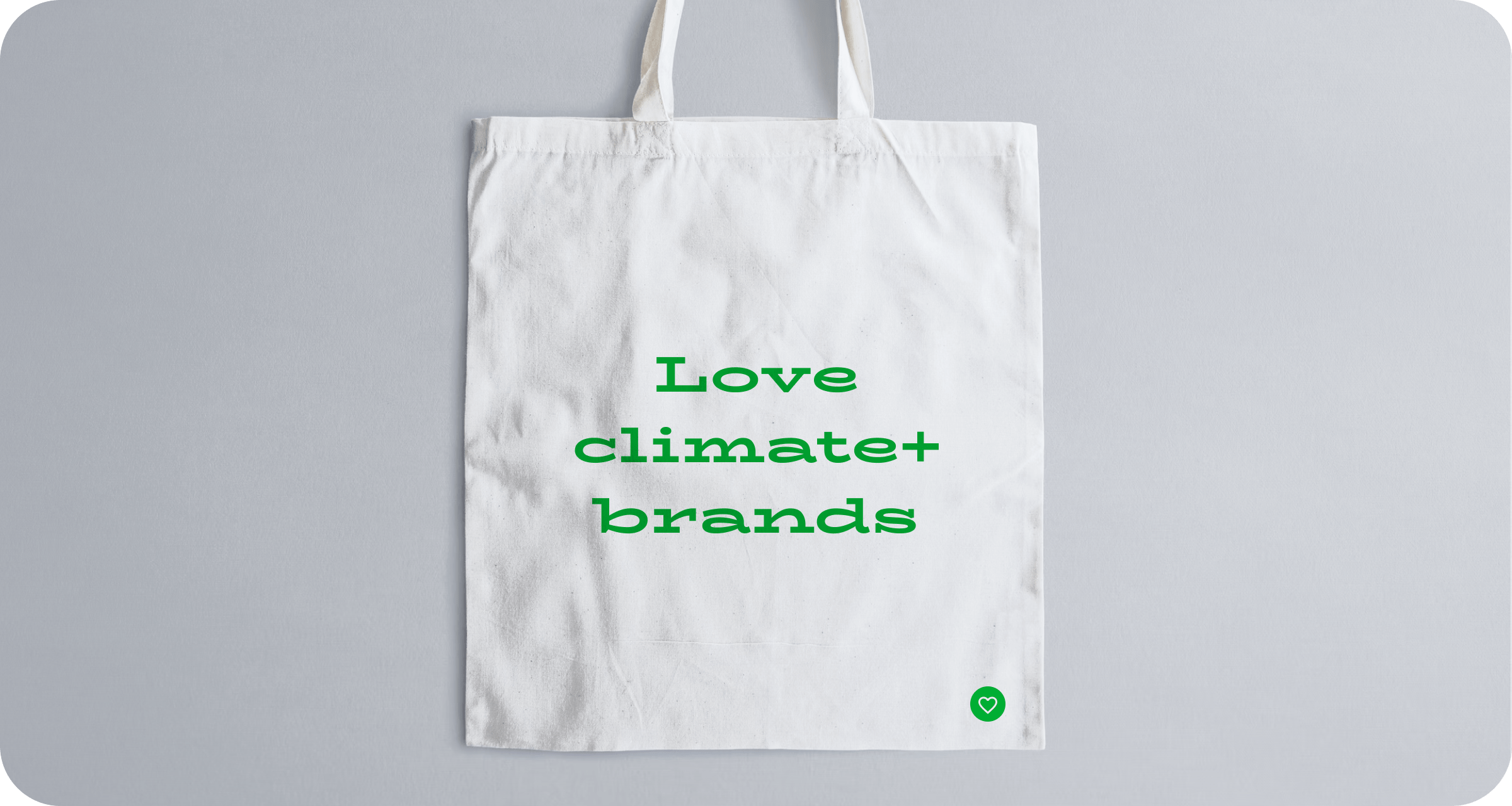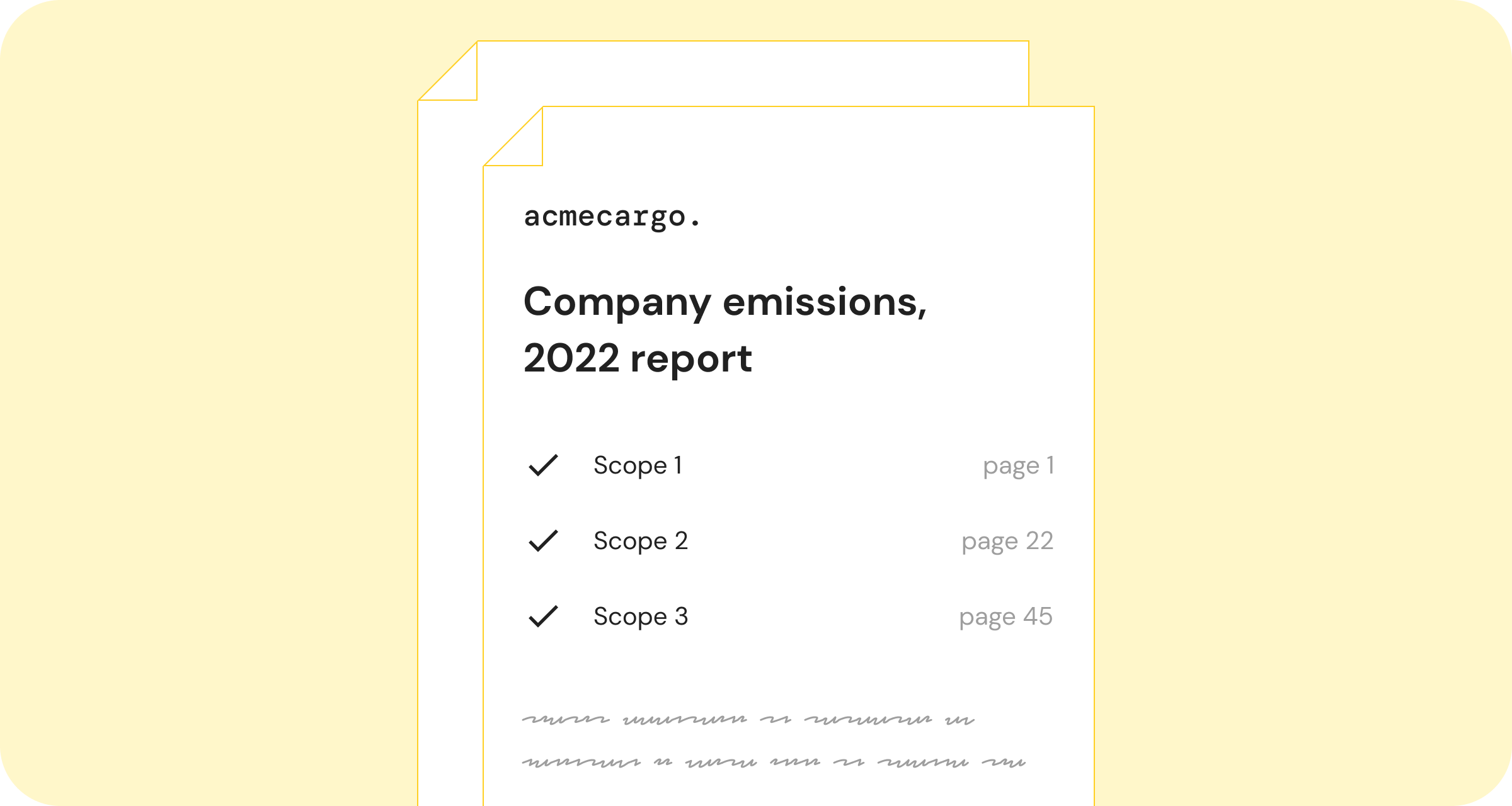

Consumers have changed how they shop – for good.
They’re more and more aware of the impact our purchases make on the planet we call home. They want to reduce their personal impact – seeking out sustainable brands that align with their environmental values, and evaluating purchases based on climate impact.
And that isn't just based on assumptions – there are now many studies proving it.
Here’s a handful of those:
- 80% of consumers have sustainability as a priority, and 70% will pay more price to shop with a sustainable brand (IBM, June 2020)
- The number of online searches for sustainable goods has risen by 71% over the past five years (The Economist Intelligence Unit, 2021)
- Products marked sustainable grow 5.6x faster than those that aren’t (HBR, 2019)
- 72% of the UK public believe that businesses should have legal responsibility to people and the planet, alongside maximising profit (B Lab UK and Regenerate survey, May 2020)
- 71% of consumers would choose a ‘green payment’ method during checkout, given the option (Lune, September 2021)
But what’s truly transformative is what climate impact is doing for customer loyalty.
Climate action is now a driver for customer loyalty 🤗
We all know that for businesses, loyalty is key.
Converting first-time buyers into returning customers brings the potential for further spending over their customer lifetime, as well as positive reviews and referrals to others – which could mean new customers, at an acquisition cost of £0.
And business climate action is becoming a major driver for that customer loyalty.
Subscribe for the latest insights into driving climate positivity
It’s still hard to find genuinely sustainable businesses, especially amongst all the greenwashing found in marketing campaigns today. So when consumers do find brands that align with their environmental values and that they trust are acting in the best interest of the planet, they remain loyal to that brand and champion it amongst their peers.
Again, there’s research to back this up:
- 79% of UK adults would be more likely to trust a company that is working to address environmental issues (Amex Trendex report, April 22)
- 77% of consumers would stay loyal to a brand that automatically offset the carbon emissions of their purchase (Lune, September 2021)
- 21% of consumers have encouraged others to switch to a company whose values align with theirs on an issue (Deloitte, 2021)
- Nearly 80% of executives pointed to an increase in customer loyalty as a key benefit from sustainability initiatives (Capgemini Research Initiative, 2020).
And there are case studies of real businesses experiencing the benefits of this too.
Take Unilever for example.
They launched their Sustainable Living Plan in 2010, aiming to “prove that sustainability and successful business performance are linked.” Analysis of their business growth since then shows that over the past 12 years, brands under the Unilever umbrella which have purpose and sustainability deeply embedded in them have been growing at 175% faster than those which don’t – gaining new customers and keeping them.
When you think about it, it makes sense.
Humans are social creatures.
We’re constantly looking for our tribe, for a sense of belonging and identification with those we surround ourselves with. Value alignment is a big part of that – we naturally connect with people who share similar worldviews to us. Which includes opinions on the climate crisis, because it’s so intimately connected to identity and political stance.
And we connect with companies in the same way.
The term ‘customer-company identification’ refers to how consumers perceive their ‘belongingness’ with a company – i.e. if we see a company as having similar beliefs and attributes to how we see ourselves then we identify with that company.
As a 2020 study published in the International Journal of Environmental Research and Public Health put it:
The same study concludes that if this customer-company identification is present, a customer’s loyalty is increased:
What does it mean for businesses? 💼
Climate impact and customer loyalty now go hand-in-hand.
If you want to improve your brand loyalty, you need to define your company purpose – including what that means for your stance on social and environmental issues – and then you need to communicate this effectively with your customer base.
To truly embody that purpose, the best approach is to embed it deep within your customer experiences, so that the company and the customer are building value together – deepening that sense of belonging and connection, whilst also creating sharable experiences that customers will talk of to others in their circles.
For climate change, that could be integrating emissions calculations and allowing your customers to choose which high-quality project you offset those emissions with – creating both real climate impact and customer loyalty with every purchase.
Readers also liked
Readers also liked

Subscribe for emissions intelligence insights
Get the latest updates in the world of carbon tracking, accounting, reporting, and offsetting direct to your inbox.


